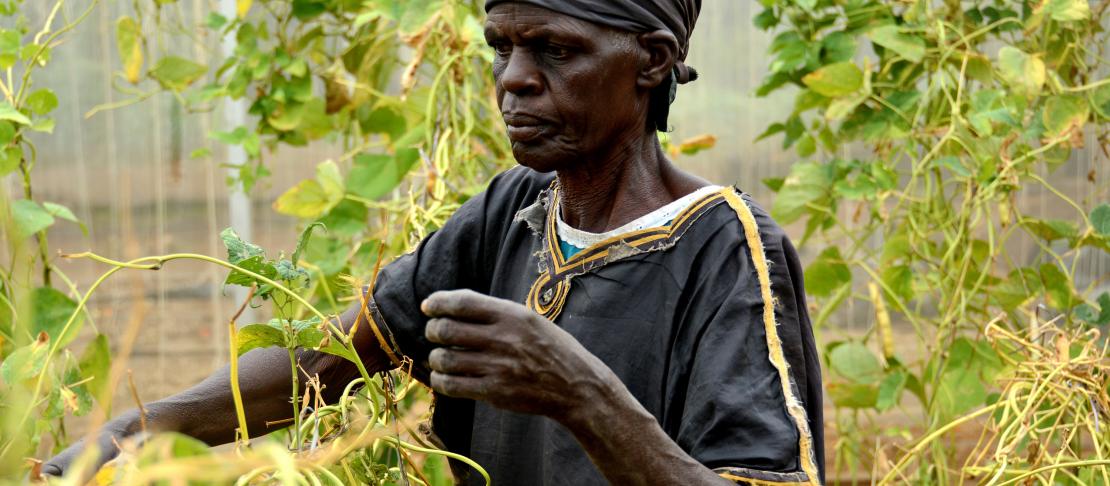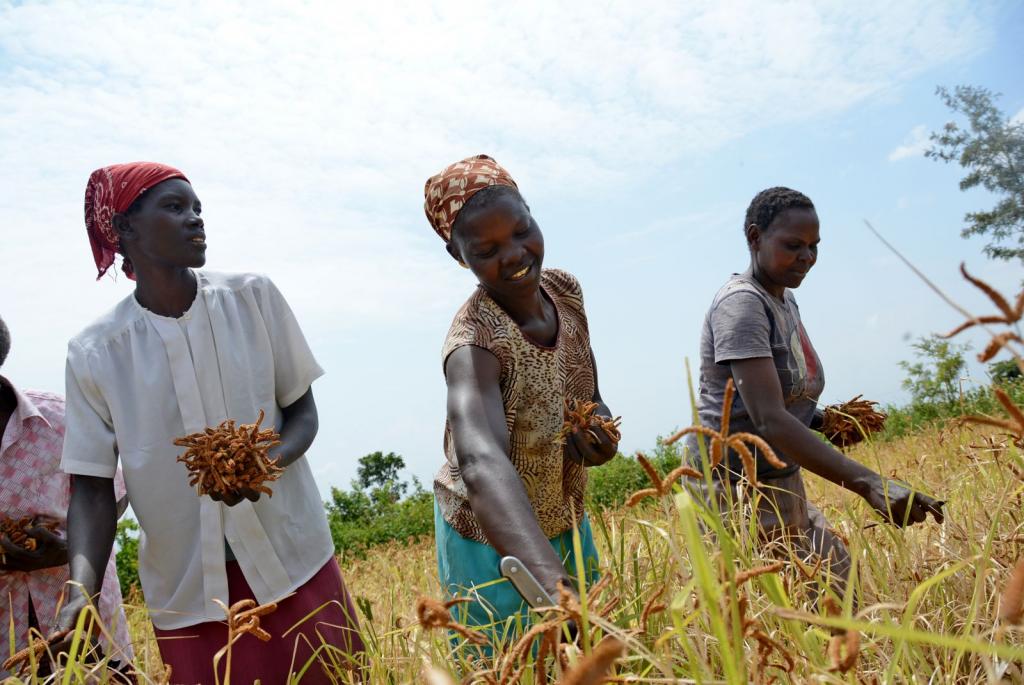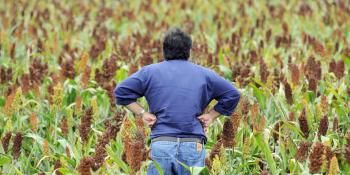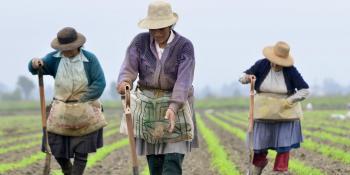How resilient are men and women farmers to Africa's changing climate?

Extensive data analysis uncovers main differences between men and women farmers' livelihoods, farm systems and organisational activity.
By looking at changes already made by farmers to adapt to a changing environment and climate, we can better understand where possibilities to build climate resilience lie, and which factors drive change.
A new research paper published in Global Environmental Change uses a comprehensive dataset to examine adaptation activities among farming communities across East and West Africa, while also comparing men and women farmers’ agricultural and livelihood systems. The authors analyse men’s and women’s access and use of productive resources, engagement in local and international organisations and access to various services. Access and use of all these indicators represent conditions that define limits to adaptation.
One of the main conclusions is that women who are farmers usually have less access to common property resources than men. They also tend to have less access to cash, needed to buy goods or services. In addition, women control less land than men, and the land they control is often of poorer quality, with insecure land tenure.
The study, which uses a unique data set, covering both qualitative and quantitative information, found that women tend to benefit from non-agricultural services provided by social support institutions that work beyond the local community but usually work and join organisations that are based within the locality.
The data for the gender-analysis were gathered as part of CCAFS baseline survey activities. The baseline survey is an open-access data set with agriculture and food-related information from all of CCAFS regions.
The baselines look at households, communities and the local organisational landscape, capturing the big picture of how farmers are changing their practices in light of climate change and other pressures. Learn more
Men, on the other hand, are better connected with groups that work outside local districts, which also may have larger pools of resources and funds.
Formally registered, public and private external organisations that encourage agriculture and livestock production in some cases have anti-women biases, and tend to provide support primarily to men, further exacerbating women’s lack of access to agriculture services.
Learn more: Study reveals major gender differences in access to fertile land and agriculture support in Africa
Getting women into larger agriculture-related initiatives will be key to strengthen their adaptive capacity.
The authors argue that gender alone, however, is not a significant determinant of vulnerability. And although climate change does affect household- and community-level farming decisions and coping and adaptation strategies, it does so more broadly and is only one of many pressures that drive change.

Making sure agriculture-focused services and institutions serve men and women farmers equally is key to building climate-resilient farms across Africa. Photo: S. Kilungu (CCAFS)
While the impacts of climate change on men and women need to be taken into account, a broad perspective beyond agricultural concerns has therefore to be considered.
The authors conclude that current agriculture and other relevant policies and strategies need to be based on gender-analyses and sensitisation, so as to eliminate gender-based prejudices. Men and women can only increase their resilience and deal with changing environments if they have equal access to land, resources, information and technical assistance.
Strengthening traditional institutional arrangements for the sustainable use and management of forests, wildlife, communal land and water through collective action is also key while ensuring that the voices of women and other marginalised groups are heard in their communities.
Finding ways to sustainably increase farming system resilience for both men and women farmers is key to operating in an increasingly variable and extreme climate. Global food security is unlikely to be achieved under climate change without increased attention to, and investment in, the millions of women small-scale farmers.
Download. How resilient are farming households and communities to a changing climate in Africa? A gender-based perspective. By: Perez C, Jones EM, Kristjanson P, Cramer L, Thornton PK, Förch W, Barahona C 2015. Global Environmental Change. Volume 34, September 2015, Pages 95–107
*The article is open access (click the link for the DOI from the download page above) and also builds on a previously published Working Paper: How resilient are farming households, communities, men and women to a changing climate in Africa?- Read a more comprehensive blog on this paper: Study reveals major gender differences in access to fertile land and agriculture support in Africa
This study was led by Dr. Carlos Perez, who tragically passed away earlier this year. Read more: Remembering a good friend and inspiring colleague



